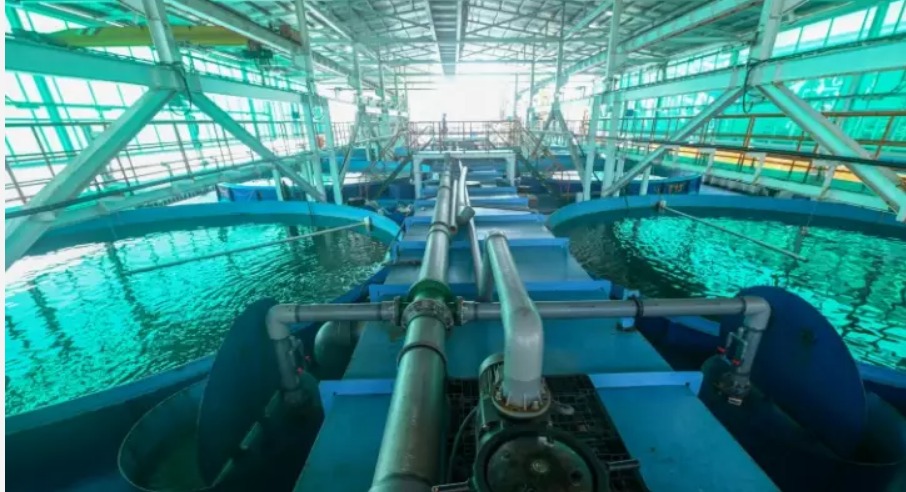Off the coast of Singapore floats a high-tech fish farm, the brainchild of a retired engineer who once built oil platforms.
This fish farm is backed by Singaporean authorities because the city-state, home to nearly six million people, now relies on imports for 90% of its food.
To guard against supply disruptions that climate change, diseases, or conflicts can cause, Singapore hopes to produce a third of the food it consumes by 2030.
Barramundi, grouper, tuna—the facility harvests thirty tons of fish per month, says Leow Ban Tat, founder of Eco Ark and the Center of Excellence in Aquaculture. This is 20 times more per hectare than traditional open-net cage farms, he claims.
« There’s a big difference in what we’re doing because we believe in technology, » Mr. Leow, 65, told AFP.
The structure, resting on a specially designed submersible platform, filters seawater using an ozone machine to kill pathogens before transferring it to fish tanks six meters deep.
These tanks simulate ocean conditions and allow fish to swim against the current. This makes them leaner and more nutritious and also protects them from certain diseases, plankton proliferation, and oil spills.
The water is so clean, Mr. Leow claims, that unlike other farms, Eco Ark doesn’t need to add antibiotics, which can lead to human resistance over time and affect the environment.
Adult fish are fed frozen squid and pellets, while juveniles receive probiotics « that aid digestion and physiological functions » while « enhancing animal performance, » he said.
—Reducing Emissions—
Mr. Leow also seeks to reduce emissions from his « farms of the future » with solar panels. He also built a hatchery after finding that juvenile fish imported from Malaysia and Australia carried diseases.
Eco Ark’s fish are delivered to over 80 restaurants, supermarkets, and specialty stores, which prioritize fresh, healthy catches.
Mr. Leow hopes not only to sell his fish but also to export Eco Ark’s technology, which he believes can be built near coastal areas to reduce delivery times and costs.
« It’s very important for local farmers, who truly understand the local economy, to be encouraged to meet demand, » says Daniel Teo, co-founder of Singapore’s Kin Hoi restaurant, which sources from Eco Ark.
Food security has become a major issue for Singapore, which sprawls over an area seven times the size of Paris but lacks space to meet its agricultural and industrial needs.
However, Madhumitha Ardhanari, lead sustainability strategist at the nonprofit Forum for the Future, worries about Singaporean fish farmers’ heavy dependence on government subsidies, raising concerns about their long-term viability.



